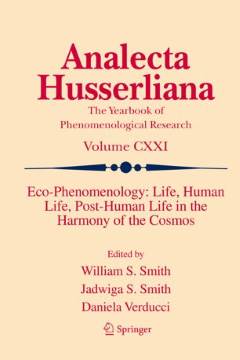Repository | Book | Chapter

(2018) Eco-Phenomenology, Dordrecht, Springer.
Eco-phenomenology of scientific activity as non-routinized routine
Stefan Banach's café method of research and its contemporary continuation
Bronisław Bombała
pp. 291-308
Fascination with mathematical formula, i.e., instrumental rationality, is the core of the crisis that plagues the contemporary world. Absolutizing the role of mathematics in building business strategies has become one of the main determinants of economic and ecological crises. The crisis experienced nowadays is perceived by most people as a physical problem to be resolved through technological innovation. However, phenomenologists notice also a metaphysical dimension of this crisis, calling for reflection and re-conceptualization of familiar business strategies and the relationship between human beings and nature. Phenomenology, especially Anna-Teresa Tymieniecka's phenomenology of life, is able not only to challenge the basic conceptualization of utility in today's modern, industrialized civilization, but also to indicate the way in which the existing problematic situation can be remedied.Anna-Teresa Tymieniecka's phenomenology, centered as it is around the creative experience, provides a good basis for an analysis of scientific activity. According to her, phenomenological research should be focused on will, imagination, and creativity – i.e., cognition that crosses the boundaries of reason. Stefan Banach's café method is an example of a phenomenological research system that fulfils these criteria. Banach's café method of research has developed from addressing a paradoxical situation in which a new tool of scientific research, one originally invented as a form of resistance against routinized methods of scientific work, has become a routinized process itself; still, it is an unusual one, since Banach's café method is characterized by an "initial spontaneity".Over time, Banach's café method of research became a source for developing methods of spontaneous inference that are used in contemporary management science (e.g., Open Space Technology, The World Café and the "3i" formula), which leads to the conclusion that this non-routinized method of research has evolved into a routine of management, even though that form of management remains non-routinized.
Publication details
DOI: 10.1007/978-3-319-77516-6_23
Full citation:
Bombała, B. (2018)., Eco-phenomenology of scientific activity as non-routinized routine: Stefan Banach's café method of research and its contemporary continuation, in W. S. Smith, J. Smith & D. Verducci (eds.), Eco-Phenomenology, Dordrecht, Springer, pp. 291-308.
This document is unfortunately not available for download at the moment.



